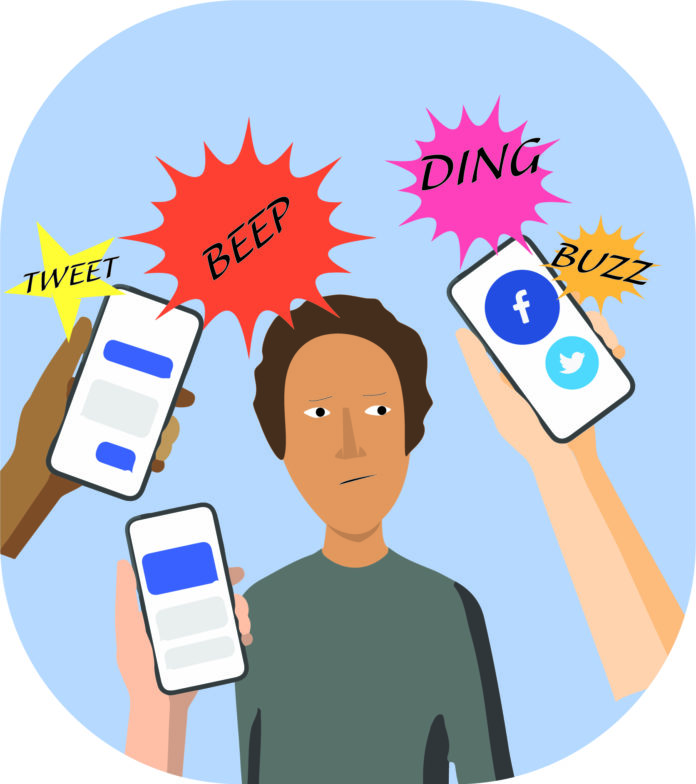It has become an automatic reaction. When we arrive at a destination early, when we’re bored during a meeting or when we don’t feel like making small talk with any of the people around us, we resort to the easiest distraction: our phones.
It’s just a convenient and simple way to remove ourselves from a situation. We can easily assume it doesn’t offend or affect anyone else either, since it seems like everyone else is doing it too: in the classroom, in a coffee shop, on the shuttle. Rather than engage with what is around us, we shut out the world and circulate through our apps.
But is refreshing feeds on Instagram, Twitter, Snapchat, or fixating on our texts or photos valuable when we did the same thing just 30 minutes earlier? It’s not. It’s especially not in two situations where it tends to be incredibly common—the classroom and in meetings.
We often view these more formal settings as obligatory rather than places we would choose to be. They’re situations that often involve one person lecturing a larger group, and it’s easier to zone out and check our phones than to make any effort to actively participate.
It’s usually not done out of malice, but the underlying reality is that the person lecturing is more aware than we think. Despite our best efforts to hide our phones behind our backpacks or under the desk, the teacher or leader can typically still see people looking down and looking distracted (not to mention the light from the screens).
To the person leading that class or that meeting, us looking at our phones is a sign of disrespect. Looking at our phones says, without words, that we view our lives and our priorities as more important than whatever is being spoken about. It says that we’re tired, bored and that we would rather be somewhere else. It says that we don’t care.
There are some legitimate reasons to give our phones quick looks — checking to see if you received an important text or email or waiting on a call from a family member are inevitable at times. But this is different than using any slightly boring scenario to scroll through social media or respond to texts from our friends.
Additionally, multitasking is not as easy at it seems to be—despite our best efforts to listen to the speaker and check our social media at the same time, we can’t give both our complete attention. This also makes us naturally worse listeners. When we’re so used to tuning people out or letting words pass through us subconsciously, we’re more likely to resort to this in conversations with our friends or family. Zoning out can become an easy habit.
So the next time we’re in a class that we’re not interested in, or attending a weekly meeting when we would rather be completing homework, let’s put down the phone. Let’s actively engage with what is happening around us. Messages and social media can wait.





